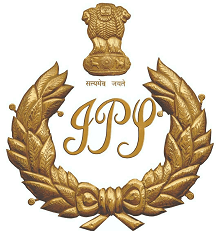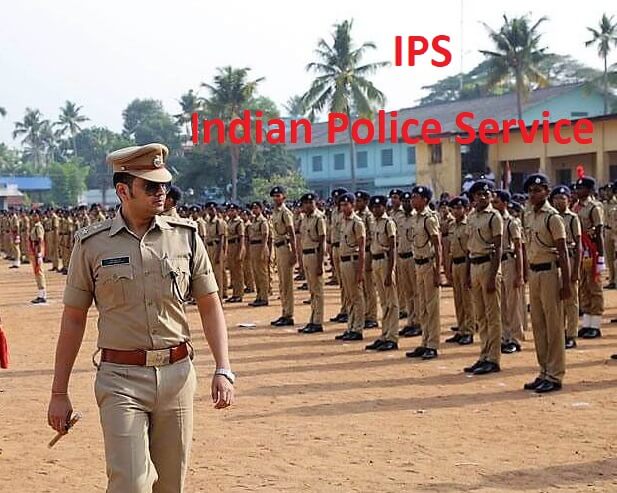IPS - Indian Police Service
The Full form of IPS is the Indian Police Service, which is one of the three All India Services. Although it provides commanders for higher-ranking positions in state police and the Central Armed Police Forces, IPS is not a security force (CAPF). IPS officials in India have a lot of responsibilities and also receive a lot of perks. Because they are members of an all-India service, IPS officers can work for both the central government and the states. 
HistoryIndian Police Service (IPS) officers serve as senior leaders in police forces across the country, both in the states and nationally. The Indian Police Service's Legacy (IPS) started during British rule in India, it was then known as the Indian (Imperial) Police. In 1948, a year after India obtained independence from Britain, the Indian (Imperial) Police were replaced by the Indian Police Service. Under Article 312 of the Indian Constitution, the Indian Police Service (IPS) was founded as one of the three All India Services in 1950. About IPS TrainingThe Indian Police Service is well-known in India. It is one of three all-India services available in the country. After passing the UPSC civil services exam, one can join the IPS and work as a police officer. Before entering the service, a recruit receives training. The training provided to IPS recruits is divided into four parts:
The foundation training is held at the LSBNAA, where all civil service recruits attend. After that, students continue to phase I of the training. The Foundation Course is another name for it. It is held at the Sardar Vallabhbhai Patel National Police Academy in Hyderabad (SVPNPA or simply NPA). The basic course's principal purpose is to prepare probationers to deal with the specific difficulties they may encounter in the field. The basic course's goals are to:
The following are the topics covered in the fundamental course: Indoor Subjects Required for IPS:
Information and Communication Technology (ICT) is number 14 on the list. Indoor subjects that are required:
Subjects for IPS training that are optional:
An IPS Officer's PhysiqueThe IPS exam has the same eligibility requirements as other services, but there are some physical requirements that IPS officers must meet. After passing the civil services exam and being assigned to the IPS according to his rank, the candidate must pass the required physical exams to be eligible to serve as a police officer. The following are some of the unique physical requirements for IPS. They're also subject to change based on UPSC announcements.
Which IPS exam should you take to get into IPS?To join the Indian Police Service (IPS), you must pass the Union Public Service Commission's (UPSC) Civil Services Exam (CSE). The UPSC conducts the Civil Service Exam (CSE) to select candidates for various services, including IAS, IPS, IFS, IRS, etc. Candidates must be between the ages of 21 and 32 to sit for the exam. The age limit for applicants from the OBC, SC, and ST groups has been relaxed. For taking the civil service exam the candidate must have a graduation degree in any field. The Civil Services Exam is divided into three stages: Preliminary, Mains, and Interview. The next day will be a medical test following the UPS interview. The Indian Police Service is technical, and candidates who do not satisfy the minimum height and chest girth requirements would be rejected. How many numbers of IPS officers are in India?The Indian Police Service Officers have a total authorized strength of only 4802. Many positions remain empty among the permitted strength. It implies that if you join the Indian Police Service, you will be in an unrivalled position. You'll join a high leadership group with the ability to command a variety of police forces. Is there any other method to enter into IPS other than UPSC CSE?There are three ways to join the Indian Police Service at the moment. Some of them are as follows:
Civil Services and IPS ExamsThe full form of (CSE) is Civil Services Examination. It is one of the most popular tests organized by the Union Public Service Commission. UPSC holds this exam to recruit candidates for roughly 24 top government jobs, which includes IAS, IPS, IFS, IRS, etc. Following are the three stages of the UPSC Civil Services Exam (CSE):
The examination process hardly takes 10-12 months (usually from June month to June month next year when the results are announced). Explanation of all the levels of exam:1. Preliminary AssessmentThe preliminary exam takes place in the month of May-June, and the results are announced in July-August. The Preliminary Examination will be made up of two objective types (multiple choice) examinations for 400 points. Only applicants who pass the Commission's Preliminary Examination in the year will be allowed to take the Main Examination. Alternatively, students must meet some other set of qualifying criteria for entrance to the Main Examination. However, the aspirant's performance in the preliminary examination is not considered in the final selection procedure. 2. The Main ExamThe main examination takes place in October-November, and those who pass this level are subsequently invited to do a personality test. The number of attempts candidates allowed to attempt the main examination depends on their category such as general, SC, OBC, etc. The Main Examination usually consists of nine papers, all of which are extended essay/subjective type questions. They examine your general knowledge, as well as, of course, your writing skills and approach toward the subject. 3. Personality Test/InterviewFollowing the announcement of the mains exam results, those who have passed the mains exams are invited to take a personality test with the officials in March and April. The number of individuals invited for an interview is about double the number of positions the government intends to fill. It has a point value of 275. The marks obtained in both the mains and the interview will ultimately determine whether or not an applicant is hired for the position. Following the completion of the procedure and the announcement of the results, the selected applicants are sent to their training program for a suitable orientation to their profession and to gain experience. Following that, candidates are assigned to various disciplines based on their performance in the civil service examination and their choices when applying for the position of Indian Police Officer. IPS SalaryAn IPS official's remuneration is nearly identical to that of an IAS officer, with just slight changes. The lowest-ranking IPS officer (ASP rank) is paid Rs.56100, while the highest-ranking officer (DGP) is paid Rs.2,25,000. In addition to the basic wage, allowances such as DA and TA are offered. Officers in the Indian Police Service are eligible for wage increases and promotions throughout their careers. Promotions are made after evaluating the officer's performance based on Annual Performance Appraisal Reports, Vigilance Clearance, and a review of the officer's overall record. About Responsibilities
How does anyone can qualify for the IPS Exam?If you are applying for the IPS Exam, you must meet all of the eligibility requirements. If you are filling the application form, it does not show the guarantee that you will take this exam. As a result, there is no room for deception. There are a few most important points to consider while taking the IPS Exam:
Maximum Age LimitWith effect from 2015, the UPSC Civil Service Examination revised the upper age limit and the number of attempts for applicants. The upper age limit will be:
Number of attempts
ConclusionAt any level, becoming a police officer is a difficult task. Being an IPS requires a lot of courage, but it doesn't come with glory. An IPS officer's brains and reflexes are frequently put to the test, requiring them to go without sleep for days at a time. IPS comes into contact with the worst and the best of society regularly. While the IAS is a generalist agency, the IPS focuses solely on concerns of law and order, which gives them a broader scope to work with than most of us realize. A police officer's responsibilities could range from traffic control to enforcing legislation that governs commercial and civil life and protecting residents' lives and property. Good interpersonal and people management abilities are vital for an IPS officer. Still, he should also make quick yet sensitive judgments about individuals and maintain his cool under pressure.
Next TopicPCOD - Polycystic Ovarian Disease
|
 For Videos Join Our Youtube Channel: Join Now
For Videos Join Our Youtube Channel: Join Now
Feedback
- Send your Feedback to [email protected]
Help Others, Please Share









